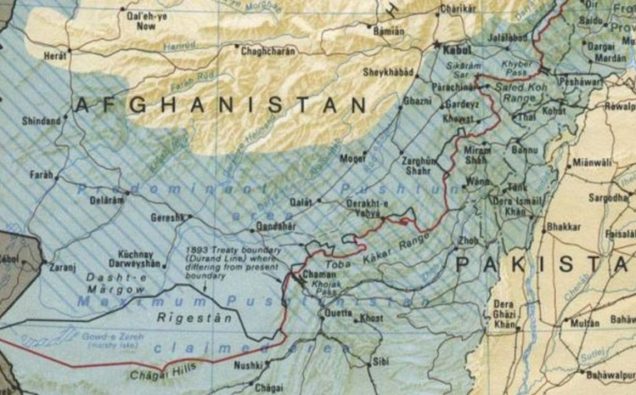
The Tehrik-e Taliban Pakistan may have been inside Pakistan but the militant organization continues to target the country from neighboring Afghanistan.
The UN this week confirmed fears that the (TTP) my be down but it is not out of business, and is operating against Pakistan with hundreds of militants.
The TTP and and its splinter group Jamaat-ul-Ahrar (JuA) continue to target Pakistan from their bases in Afghanistan, the UN report says.
The revelation points to the challenges Pakistan faces in combating terror groups as the report puts the number of Afghanistan-based militants of the banned group up to 600.
The leadership TTP is also operating from Afghanistan, including Noor Wali Mehsud, supported by his deputy, Qari Amjad and TTP spokesperson Mohammad Khorasani , claiming responsibility for various high-profile attacks in Pakistan and has facilitated others by JuA and Lahskhar-e-Islam.
All of these terrorist groups are targeting Pakistan and are responsible for the killing of innocent civilians, the UN says in its assessment.
The UN report also warns about the significant presence of ISIL-K (The Islamic State of Iraq and the Levant – Khorasan) in Afghanistan, which the UN warns now pursues a global agenda.
The ISIL-K considers Afghan territory a base for spreading terrorist influence across the wider region, it cautions.
About Al-Qaeda, the report says, it is covertly active in 12 Afghan provinces and its leader Aiman al-Zawahiri remains based in Afghanistan. The UN has estimated a total number of Al-Qaeda fighters in Afghanistan at between 400 and 600.
In India, the UN report reports ISIL-India has a strong presence in Kerala and Karnataka. ISIL-India first came into global limelight after the Easter bombing in Sri Lanka. The Investigators found links between Indian nationals and terrorist attack in Sri-Lanka.
In the report, the UN expresses concern about the growth of ISIL-India, particularly in south India and its threat to the neighboring states — Sri Lanka and Maldives.
















